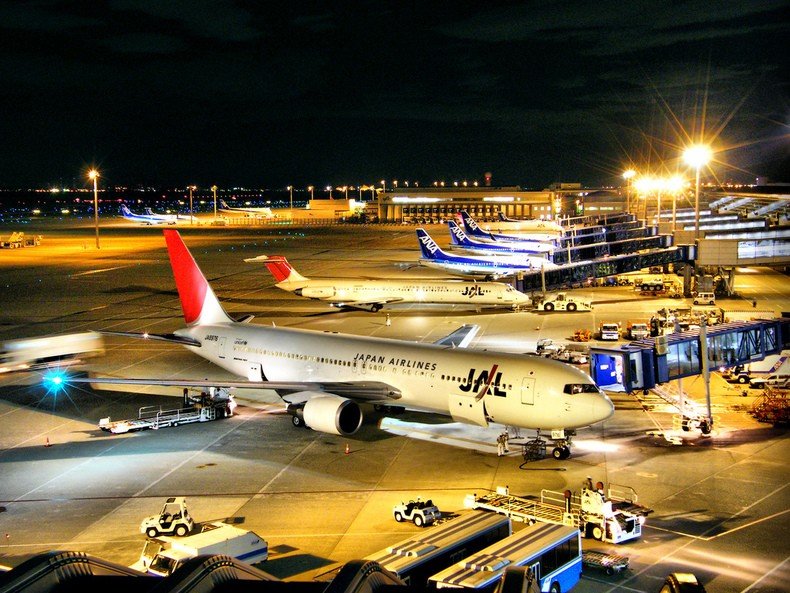Traveling to Japan is an experience full of discoveries, but unforeseen events can happen, including the loss of a flight. Japan, with its organized structure, offers some solutions for those facing this type of problem. However, it is essential to know how to act to minimize losses, especially if visa issues or length of stay in the country come into play.
Next, we will explore the main scenarios related to flight cancellations in Japan, how to handle local bureaucracy, and practical tips to prevent such situations from causing serious complications.
Table of Content
What to do if you miss a domestic flight in Japan?
Missing a domestic flight can seem disastrous, but there are ways to resolve the situation. Local airlines such as ANA, JAL, Peach, and Jetstar have specific rules for flight rebooking, although the costs can vary widely.
Contact the airline immediately.
As soon as you realize you missed your flight, head to the airline counter at the airport. Some companies allow rebookings with lower fees if you report the delay quickly. Bring the public transport delay certificate if the reason for the delay was an issue with the trains or buses.
Consider alternative airlines.
In emergency situations, checking other options may be more economical. Companies like Peach or Jetstar tend to offer more affordable prices, although availability depends on the time of year.
Use benefits for young people or special discounts
Some companies offer discounts for people under 25 years old. This benefit can be requested at the counter, and the price difference can be significant.
Tip: JR Delay Certificate
In Japan, if a train or public transport is delayed, you can request a delay certificate (遅延証明書 - chien shoumei-sho). This document verifies the delay and can help in negotiations with the airline.

How to proceed when you miss an international flight?
Missing an international flight is more complicated due to the connections and costs involved. Depending on the type of ticket, the penalties for rescheduling the flight can be high, in addition to potential implications for your visa status.
Communicate with the airline
Contact the airline as soon as possible. Some companies offer flexibility on missed flights, especially if you can justify the delay.
Use tools like Skype for international calls.
International calls at Japanese airports can be expensive. Using apps like Skype is an economical alternative to contact travel agencies or airlines.
Check the travel insurance
Despite the limitations of some policies, your insurance can help in specific cases, such as rebooking on another flight or accommodation in emergency situations.
If the visa is close to expiring
If missing the flight means exceeding the permitted length of stay allowed by your visa, you should immediately seek the immigration department to request an extension.
Tip: Be prepared for extra costs
When rescheduling an international flight, be aware that fees and charges can reach hundreds of dollars. Having an emergency reservation or available credit limit on your credit card can be crucial.

What to do if the visa expires?
A serious problem that may arise when missing a flight in Japan is the proximity of the visa expiration. In these cases, it is essential to act quickly to avoid legal complications.
Go to the Immigration Department
Look for the Japanese immigration in your region before your visa expires. Explain the situation and provide any documentation that proves your intention to leave, such as a flight reservation.
Necessary documents for visa extension
See below the valid documents for emergency visa extension:
- valid passport
- Proof of reservation for the new flight (even if it is just a temporary reservation)
- Reason for the request (explained in a letter or form provided on site)
Costs and payment of the extension
The standard fee for visa extension is 4,000 yen. Make sure to bring the amount in cash, as cards may not be accepted at some immigration offices.

My Experience Losing Flights in Japan
During one of my trips to Japan, I faced two incidents related to flight cancellations that taught me many lessons about travel unforeseen events.
In the first case, during a trip from Sapporo to Osaka, a train delay caused by a fallen signal made me miss a domestic flight. Despite acting quickly, checking in online and looking for alternatives like buses, I arrived at the airport too late and discovered that early check-in has its downsides.
The attempts to reschedule the flight with more affordable airlines were frustrating, but thanks to a special discount, I was able to get a new ticket that cost 48,000 for 15,000 yen on ANA, avoiding an even greater loss.
The second incident happened on the way back to Brazil, when I confused the flight time. I missed the flight and, to make matters worse, it was a holiday in Brazil, making communication with the airline difficult. With no cash available for withdrawal due to the weekly limit, I had to turn to friends like Coelho in Japan for help, and I had to go through some hassle at immigration. This period was stressful, but it also marked moments of solidarity, like the help from a friend who sent me meal coupons directly on Line.
Despite the losses and difficulties, these experiences were valuable and taught me to plan better, consider unforeseen events, and rely on the help of people I met along the way.
